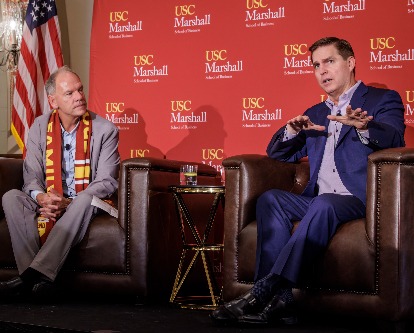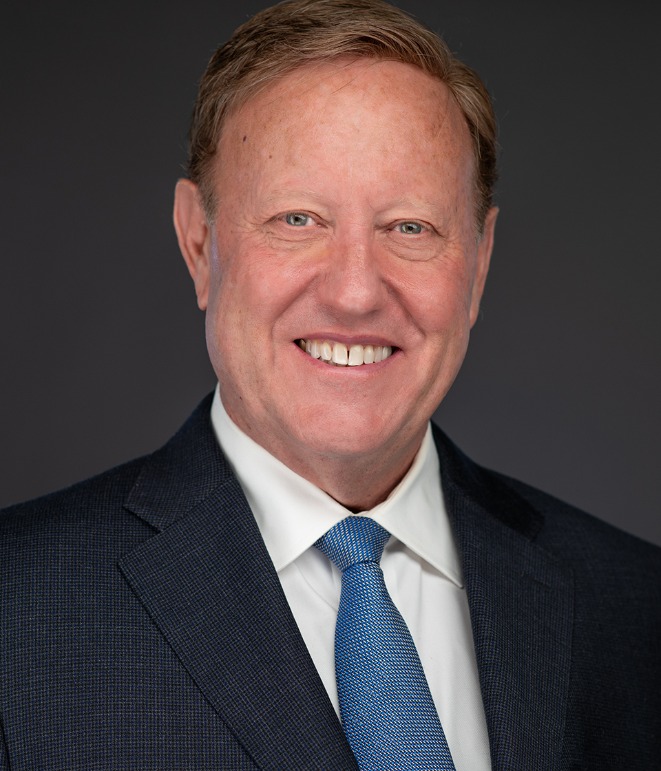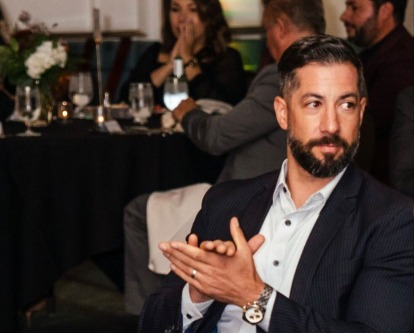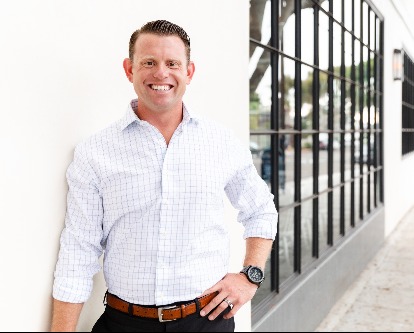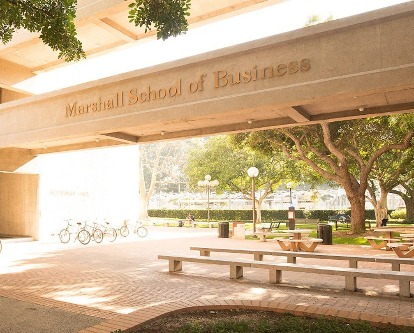What has contributed most significantly to your personal success in the industry?
SM: Without question, formal insurance education has made all the difference. This is a very technical business and “on-the-job-training” only goes so far. I have undertaken various designations such as CPCU, ARe, and others, and have also taught many insurance courses (one really learns when you must teach the content!). Clearly, our business is one of networking and I have made that also a long-term part of every single workday. I have gained jobs, earned new clients, and have met some amazing friends through networking.
What is one piece of advice you would provide to students entering the risk management and insurance industry?
SM: I currently have the true honor of being a USC Arkley Institute Trailblazers mentor and am enjoying my assignment enormously. Some of the advice that I give in that role, I will state here.
First, no one is responsible for your career but you. There is no master plan in these large organizations for the careers of junior people. You must make the opportunities to surface yourself — it has always been that way.
Second, be visible and remembered. There is a tendency with junior people to be overly deferential to senior leaders and to say nothing in their presence. That is when you need to speak up the most. How else will they ever know you? Get “airtime” when you have an opportunity. That led to one of my early “break-out” promotions. Seek out industry leaders at events, but ask them insightful questions that most others will not — things they feel comfortable talking about such as, “How do you feel AI will transform our company?”
Third, you belong to the greatest fraternity/sorority in the world — the USC Alumni Association. Use it — it is a powerful tool! USC is like one of those things in life where you get out of it what you put into it. I have been a lifelong member of the Alumni Association (now in Dallas) and have met people (in all fields) who have greatly enriched my life. Doctors, lawyers, financial advisors, educators, and, yes, insurance people.
Fourth, it is truly all about lifelong learning. Never stop, and also learn in new career verticals such as AI. It is nascent — learn everything you can about it every day as others are not doing so.
And finally, fifth — stay in your job as long as you are being challenged. Life is way too short to ever tread water. Through moving (and literally moving) for better opportunities, my career has thrived. That said, if you are moving into new roles with an incumbent company, that is also a very good path and you are accomplishing the same thing. Just don’t over-specialize too early in your career. I have found success from having generalist skills — reinsurance requires that. Make everything you have done in your life complementary to everything else done subsequently. For example, I use my finance skills all the time in insurance and “sell” to CFOs every day for captives in the language of finance. I have met amazing marine underwriters who were once in the Navy, or amazing medical malpractice executives who were once nurses. If you are fortunate enough to have lived in other cultures and countries, what an amazing possibility that gives you in this global risk business.
You have been in the reinsurance industry for over 30 years and have witnessed a lot of change. What do you think is the most significant challenge facing the reinsurance industry today?
SM: Definitely there is an emerging global crisis around uninsured risks — the so-called insurance gap. By that, I mean that in any given year we will see perhaps $100 billion in insured catastrophe or CAT losses, but a multiple of that number in uninsured economic losses. There are also a host of emerging risks that are not well covered in the traditional insurance space and they are expanding by the day. Our industry needs to better align with capital markets to provide greater penetration into this insurance gap, which has been getting wider.
Secondly, CAT risks are clearly evolving into secondary and tertiary perils. I don’t meet many climate change deniers in the reinsurance world. There is a growing capacity shortage for many pockets of risks. I work with some Midwest mutual insurance companies who are struggling with rising CAT events for tornado, hail, freeze, and/or flood with contracting reinsurance capacity and massively escalating costs. Their business models are being challenged and margins are squeezed as they are unable to pass along fully their reinsurance costs.
One final observation, one thing that has come increasingly to my attention, is something that I always knew. It is best to align with financially strong and growing entities and emerging sectors. They make the best clients and employers (and can also afford advanced risk tools like captives and invest in substantial loss control). Dr. Alan C. Shapiro (professor emeritus of finance and business economics) in the USC Marshall finance program for undergraduates told the class once, “Align with things on the way up in your careers.” So true, then and now! I would extend that to the people you work for. Seek out bosses and leaders that are also on the way up. As they move on and up, they will assemble teams they know and trust. I was somehow blessed to work for people right from the beginning that eventually over time became CEOs and successful entrepreneurs.
You are a triple USC graduate, having received your undergraduate business administration degree in 1980, your MBA degree in 1985, and, most recently, your MS in Global Supply Chain Management in 2018. Why did you pursue the degree in Global Supply Chain Management?
SM: I must say, this was a bit unconventional. I entered the program already with long-term degrees in place, but I took this online program in 2017–2018 to truly expand my horizons. I had met Nick Vyas, founding director of the Randall R. Kendrick Global Supply Chain Institute, and Eric Chow, associate director and career strategist, through some other USC activities and they recommended that I apply for the online program. I was initially skeptical, but I enrolled and it was an amazing experience. I travel a lot and the online aspect was quite easy to fit in and actually made the travel even more enjoyable. I took exams in a hotel room in London and participated in group project presentations in New York and other places and used airport and air time to study and do assignments.
I have always been involved in supply chain risk (broadly defined), but I lacked a deep understanding of that global business model. USC is a STEM program and that was a challenge with advanced modeling requirements, but it has since made an enormous impact to my responsibilities now. The greatest benefit from the program was to study and be in groups with such amazing young people from all over the world. I became the best of friends with many and learned so much from them. I think my age and experience were also helpful to them. We actually won the cohort’s case study competition in Singapore through a combination of my macro presentation (just like a board presentation) and their excellent detailed analytics in the overall presentation. A great team.
It was truly one of the best experiences I have ever had. How I changed entirely from learning from my cohort’s Gen Z and Millennial members to investing in new technologies as well as global companies in Asia and abroad. I highly recommend something similar for all of our Advisory Council members. And since, a couple of the cohort members have brought me in for their companies’ insurance and captive discussions.
How has USC helped you in your career?
SM: I was a first-gen college student as my father was a career police officer and my mother did not work professionally. I am proud to say, we were a blue-collar family. Both my sister (a USC PhD) and I were the first two in our family to attend college — so we aimed for the best, USC. My mom was actually told by someone once that “Your kids cannot possibly afford to attend USC, don’t put such ideas in their heads.” Of course, that comment was lifelong rocket fuel. We both earned scholarships (I had one that was set up for the son or daughter of a police officer — no one ever applied for it), had loans, and worked throughout. But we never doubted the eventual pay-off. I was also a veteran student, having been in the enlisted Navy right before USC. I used those benefits to defray the tuition and would often hang out in the USC Veteran’s Center.
Growing up in Los Angeles, I was fortunate to be exposed early to an international community that was very diverse. At USC, I met lifelong friends from all over the world and all socio-economic backgrounds which added tremendously to the classroom experience. I really enjoyed the accessibility of USC professors and took advantage of that opportunity and listened to every guest lecturer on campus possible. The urban classroom of USC has always been an amazing strength. I literally drove up Figueroa for internships and my first jobs (which were amazing).
What is a fun fact about yourself besides your three USC degrees?
SM: In terms of hobbies, I really enjoy travel (can’t get enough of it) and always try for someplace new. I really enjoy following politics — on a broad level. I am a pretty fanatical USC football fan, but I have really focused in recent years on attending various away games versus going to the Coliseum. I am going to the USC-Maryland game this fall and am excited about those away game opportunities in “the Big.” Sometimes, one is outnumbered “a thousand to one” at some of those games, but it is always great fun and banter. I am also quite a student of aviation and simply love that segment and have good pilot friends in that vertical. I toyed with the notion of becoming a Naval aviator in my college years and sometimes wonder, “What if?”
